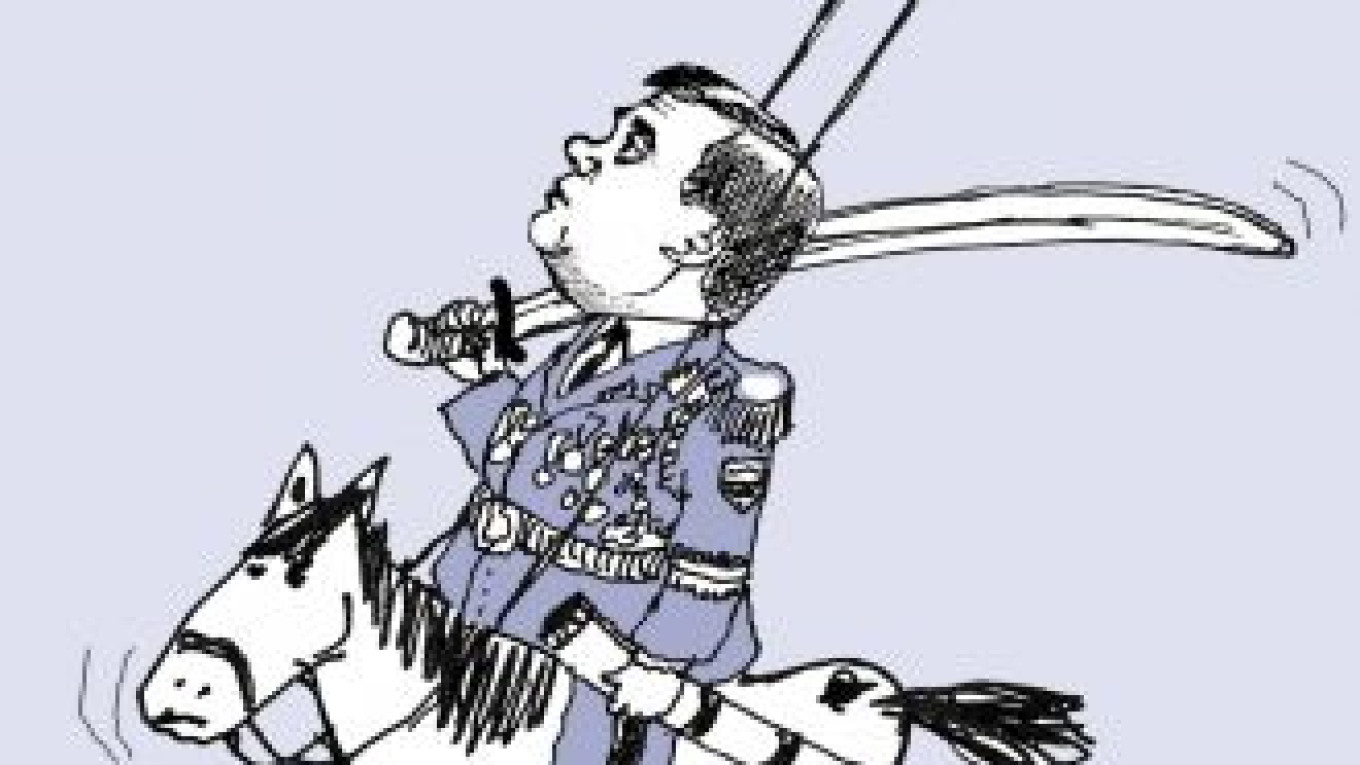There are two versions of how World War II started. The first is that the Polish military attacked a German radio station in Gleiwitz. The second is that Adolf Hitler’s army invaded Poland.
Similarly, there are two versions of how the Russia-Georgia war began in August 2008.
Prior to the outbreak of hostilities, Russia set up military bases in South Ossetia and Abkhazia, a car was bombed in the small Georgian town of Gori, power and gas lines were blown up, and a Russian fighter jet “accidentally dropped” a missile close to Gori.
Moscow also banned imports of Georgian wine and Borzhomi mineral water, prohibited flights between the two countries, and deported Georgian citizens.
And just several months before the war broke out, Russian armed forces repaired a railroad on the Abkhaz border that had the capability of transporting military equipment and ammunition. This suggested that a Russian invasion of Abkhazia was in the works. Russia also conducted maneuvers on the border of South Ossetia and in South Ossetia itself and distributed leaflets to soldiers explaining how to fight Georgians.
As a result, most of Tskhinvali was evacuated in August, and those who remained in the city celebrated the coming war against Georgia. One blogger even wrote, “We’ll fill the morgue in Gori with the bodies of dead Georgians.”
Then, according to the official Russian version of events, Georgian fascists attacked Tskhinvali while its inhabitants were sleeping in their beds.
President Dmitry Medvedev held to the official Kremlin line in an interview with Ekho Moskvy radio, Georgia’s PIK-TV and Russia Today on Thursday, which was intended to coincide with the third anniversary of the war.
Not surprisingly, his statement about the behavior of the Kremlin prior to the outbreak of war differs markedly from statements made by Georgian President Mikheil Saakashvili.
For example, Ekho Moskvy editor-in-chief Alexei Venediktov asked Medvedev to comment on a statement — “We will turn this into a Northern Cyprus” — that Saakashvili claims Prime Minister Vladimir Putin made on several occasions.
“This is complete nonsense,” Medvedev snapped back.
But according to Saakashvili, Putin made that remark not only to him, but also to NATO Secretary-General Jaap de Hoop Scheffer, who is probably a better source than Medvedev to determine who is telling the truth.
During the interview, Medvedev was also asked to comment on Saakashvili’s claim that he tried to meet with the Russian president after an international conference in Astana but that Medvedev avoided him.
Medvedev responded that in Astana he had invited Saakashvili to his residence in Sochi. Furthermore, it was actually Saakashvili who ignored Medvedev after Saakashvili met with then-U.S. Secretary of State Condoleeza Rice in Tbilisi. Medvedev implied that Rice had effectively backed Georgian aggression in South Ossetia.
But Rice actually advised Saakashvili not to “succumb to Russian provocations.” That is why Moscow’s claim that Georgia began preparing for the war immediately after Saakashvili met with Rice doesn’t hold water.
It would seem that Medvedev’s main motive in holding Thursday’s interview was to respond to a sharp remark Saakashvili made during an Ekho Moskvy interview on July 8. Saakashvili said Medvedev does not make any decisions himself and that he fits this subservient role quite well.
Above all, Medvedev organized the interview to refute that statement and to insist that he acted with complete independence in protecting South Ossetians from Saakashvili’s bloody aggression. Referring to Putin, Medvedev said, “We communicated with each other only after a full day had passed [after the war had started]. I had already given all the orders.”
We can all easily judge by ourselves whether Medvedev is independent. We don’t need the help of Scheffer or Rice.
Yulia Latynina hosts a political talk show on Ekho Moskvy radio.
A Message from The Moscow Times:
Dear readers,
We are facing unprecedented challenges. Russia's Prosecutor General's Office has designated The Moscow Times as an "undesirable" organization, criminalizing our work and putting our staff at risk of prosecution. This follows our earlier unjust labeling as a "foreign agent."
These actions are direct attempts to silence independent journalism in Russia. The authorities claim our work "discredits the decisions of the Russian leadership." We see things differently: we strive to provide accurate, unbiased reporting on Russia.
We, the journalists of The Moscow Times, refuse to be silenced. But to continue our work, we need your help.
Your support, no matter how small, makes a world of difference. If you can, please support us monthly starting from just $2. It's quick to set up, and every contribution makes a significant impact.
By supporting The Moscow Times, you're defending open, independent journalism in the face of repression. Thank you for standing with us.
Remind me later.


